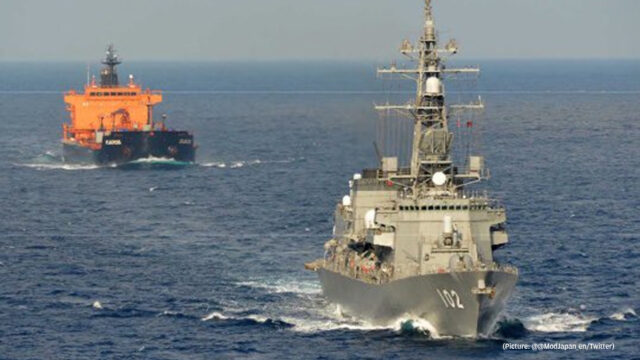Japan will scrap the 1% defence expenditure limit due to concerns over China’s actions in East China sea, said Japan’s Defence Minister Kishi Nobuo in an interview with The Nikkei Asia. The statements of Mr Kishi Nobuo have drawn a strong response from China, which has accused Japan of stroking military tensions near Taiwan.
“The security environment surrounding Japan is changing rapidly, with heightened uncertainty. We will properly allocate the funding we need to protect our nation,” said Mr Kishi Nobuo.
This statement comes after a recent summit between the United States and Japan in March 2021 where Japan resolved to “enhance its capabilities to bolster national defense.” Amidst the increasing tension in the East China Sea and South China Sea, Japan has resolved to take necessary steps to ensure the country’s safety. In the interview with Nikkei, Japan’s Defence Minister also expressed concerns over the increasing military gap between China and Japan which “leaned heavily toward China in recent years, and the gap has been growing by the year”.
Mr Kishi Nobuo also highlighted the security concerns in Ino-Pacific. He singled out the Nansei Islands (Ryukyu Islands) as a main area of concern. These islands stretch from the southern tip of Japan to north of Taiwan. China and Japan also have a dispute over the Senkaku (Diaoyus) islands in the East China Sea. Diaoyu is also claimed by Taiwan, which is just 170 km from the island.
The US has been a chief security provider and ally of Japan after the restriction placed on Japan’s defense spendings after World War II. In recent years, Japan has indicated willingness to increase its spending due to assertiveness of China. In 2020, Japan’s defence allocation was 5.31 trillion yen (US$48.65 billion) which was around 0.997 per cent of GDP. In 2021, Japan is looking to breach the 1% restriction.
China has responded strongly to the statements of Japan’s Defence Minister. Especially regarding Taiwan.
“Japan’s irresponsible remarks are stoking military competition, stirring up regional tensions, provoking military confrontations and meddling in Taiwan issues,” said China’s foreign ministry spokesman Zhao Lijian.
Mr Zhao Lijian further added, “Japan has always had a small group of forces obsessed with the old dream of militarism and they are trying to get their hands on Taiwan.”
Japan has maintained informal non-governmental level ties with Taiwan since the signing of 1972 Japan-China Joint Communiqué which recognises “One China Policy”. Relations between them are warm and cordial, if somewhat restricted. Japan and Taiwan share trade-economic, people to people, and cultural relationships. Taiwan maintains the “Taipei Economic and Cultural Representative Office” in Japan which acts like a consulate of Taiwan in Japan. Taiwan and Japan also conducted the first Taiwan-Japan Maritime Affairs Cooperation Dialogue in 2016.
The Taiwan Japan cooperation is also based on the Global Cooperation and Training Framework, which facilitates experts from Taiwan, Japan, and the US to interact with each other. Some legislatures from Japan’s ruling party had also called for a “Taiwan Relations Act” akin to the act in the US which facilitates the US-Taiwan relations.
The COVID-19 disaster has also brought Japan and Taiwan together. After China’s ban on Pineapples from Taiwan, the demand of Taiwanse Pineapples grew in Japan as an indication of solidarity.
In January 2021, Taiwan’s President Tsai Ingwen said in a video event, “We want the world to know that we have long been good neighbors with close ties. … The warm personal ties between people in Taiwan and Japan have fostered a deep bond between us. This is called kizuna in Japanese, and it is the major driver of Taiwan-Japan relations.”









